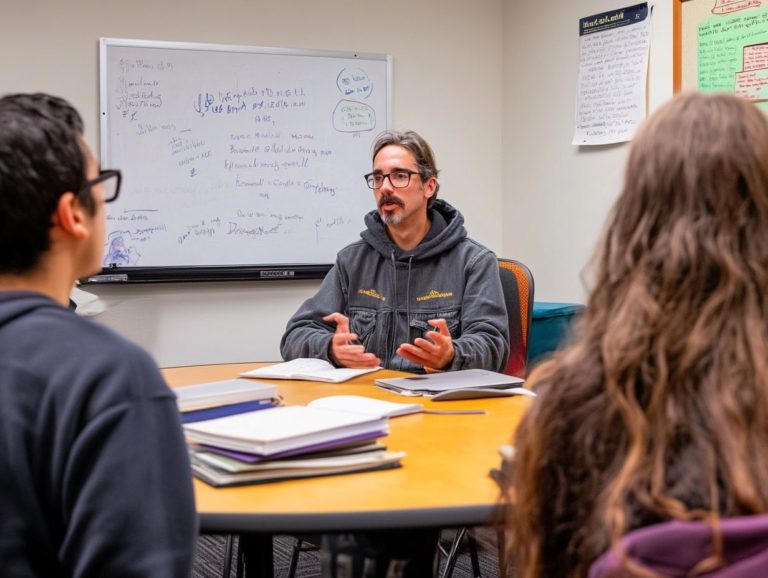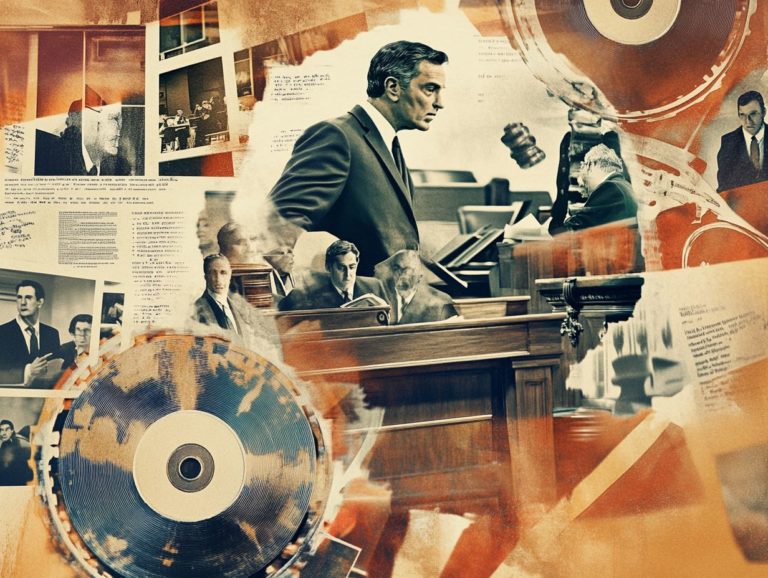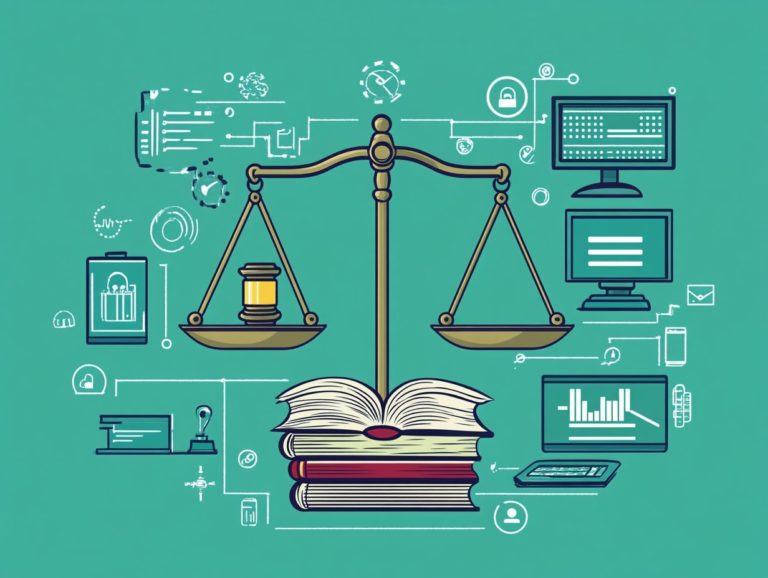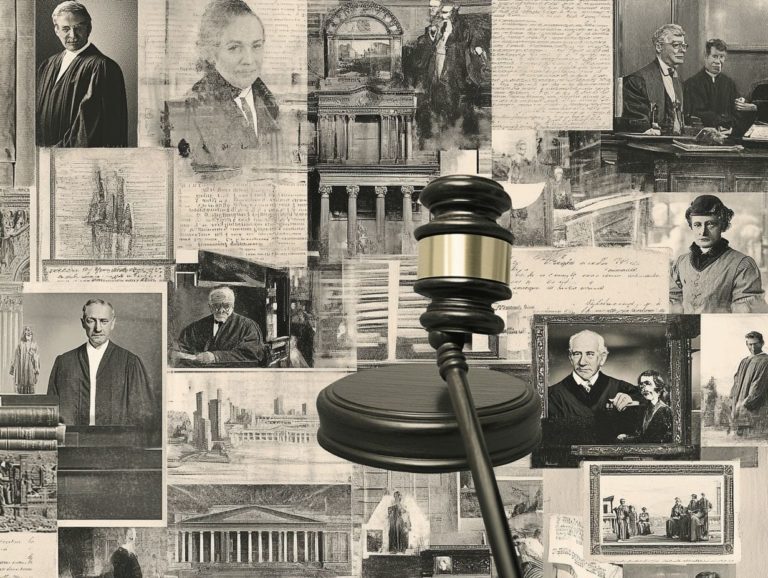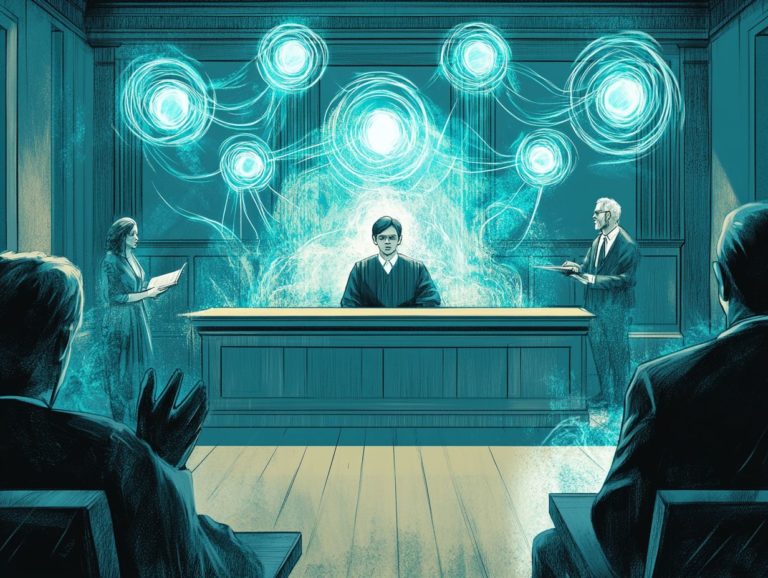How to Navigate Copyright in a Global Market
Copyright laws are essential for safeguarding creative works. However, navigating them can be quite intricate, especially in a global marketplace.
This article distills the fundamentals of copyright. It covers its purpose, the international variations, and the subtleties of infringement. You will also discover effective strategies for protecting your intellectual property while addressing the key challenges that may arise in this diverse landscape.
Whether you are an artist, writer, or entrepreneur, understanding these concepts is vital to ensuring your creations remain well-protected.
Contents
- Key Takeaways:
- Understanding Copyright Laws
- International Copyright Laws
- Copyright Infringement
- Protecting Your Copyright
- Navigating Copyright in a Global Market
- Frequently Asked Questions
- What is copyright and why is it important in a global market?
- How do I know if my work is protected by copyright in a global market?
- What steps can I take to protect my copyright in a global market?
- Can my copyright be enforced in other countries?
- Can I use copyrighted material from other countries in my work?
- What are the consequences of copyright infringement in a global market?
Key Takeaways:
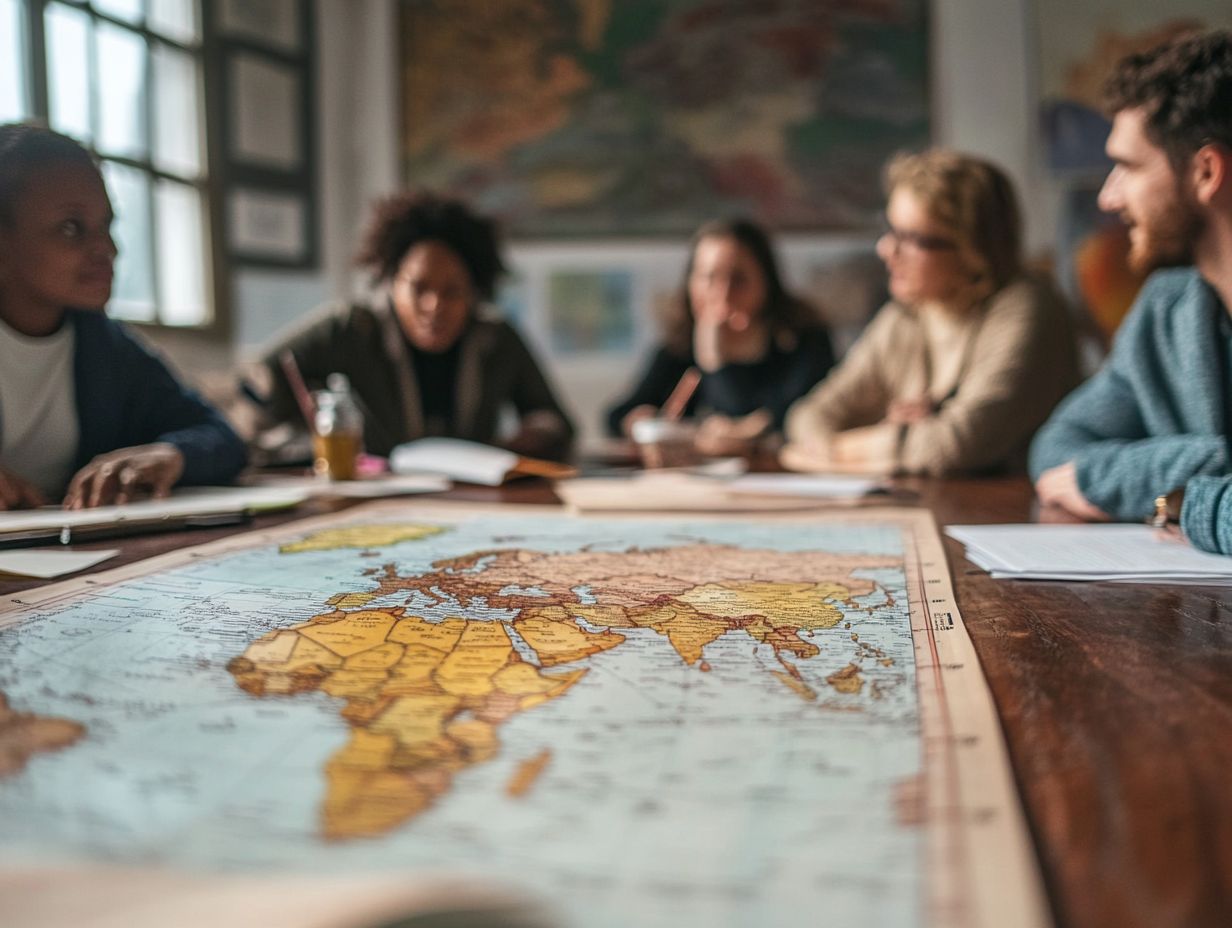
- Understand the purpose and basics of copyright laws to protect your work.
- Familiarize yourself with international copyright laws and their differences to avoid potential infringements.
- Know what constitutes copyright infringement and the potential legal actions that may follow.
Understanding Copyright Laws
Understanding copyright laws is essential for anyone involved in creating, distributing, or using creative works. These laws protect original expressions and define the rights of copyright owners.
Under the Copyright Act of 1976, artists, authors, and creators are granted exclusive rights to their works. This ensures their unique expressions are shielded from unauthorized use. This legal framework not only encourages creativity but also outlines important limitations and exceptions crucial for educational purposes and fair use.
Grasping these concepts helps you and others navigate the creative landscape with confidence while respecting intellectual property.
Overview of Copyright and its Purpose
Copyright acts as your legal shield, granting you exclusive rights to your original works under the Copyright Act established in 1976. This law emerged from a long historical journey, balancing the interests of creators with those of the public.
Originating from the era of the printing press, copyright was designed to prevent unauthorized reproductions while fostering innovation and creativity. The core idea behind copyright protection is simple: by granting exclusive rights, you incentivize artists, writers, and other creators to produce new works, enriching society with a vibrant cultural landscape.
Understanding copyright is not just important for individual creators. It places you within the larger framework of intellectual property rights foundational to today s creative industries.
International Copyright Laws
International copyright laws are shaped by a complex web of treaties and agreements. This creates a robust framework for protecting the rights of creators across various jurisdictions.
This framework safeguards their works globally.
Key Differences and Considerations
When comparing international copyright laws, it’s crucial to recognize the key differences in how various countries enforce copyright treaties and the specific limitations they permit.
For instance, the United States employs the Digital Millennium Copyright Act, emphasizing online protections for creators. In contrast, many EU member states operate under the Copyright Directive, which allows for broader exceptions tailored to educational institutions and libraries.
This disparity can pose challenges for creators navigating their rights across borders. In countries like Japan, the balance between protecting artistic works and permitting user-generated content varies significantly, highlighting the challenges of copyright in the digital marketplace and the complexities of international copyright variations.
As an artist, musician, or writer, grasping these nuances is vital to protecting your work worldwide.
Copyright Infringement
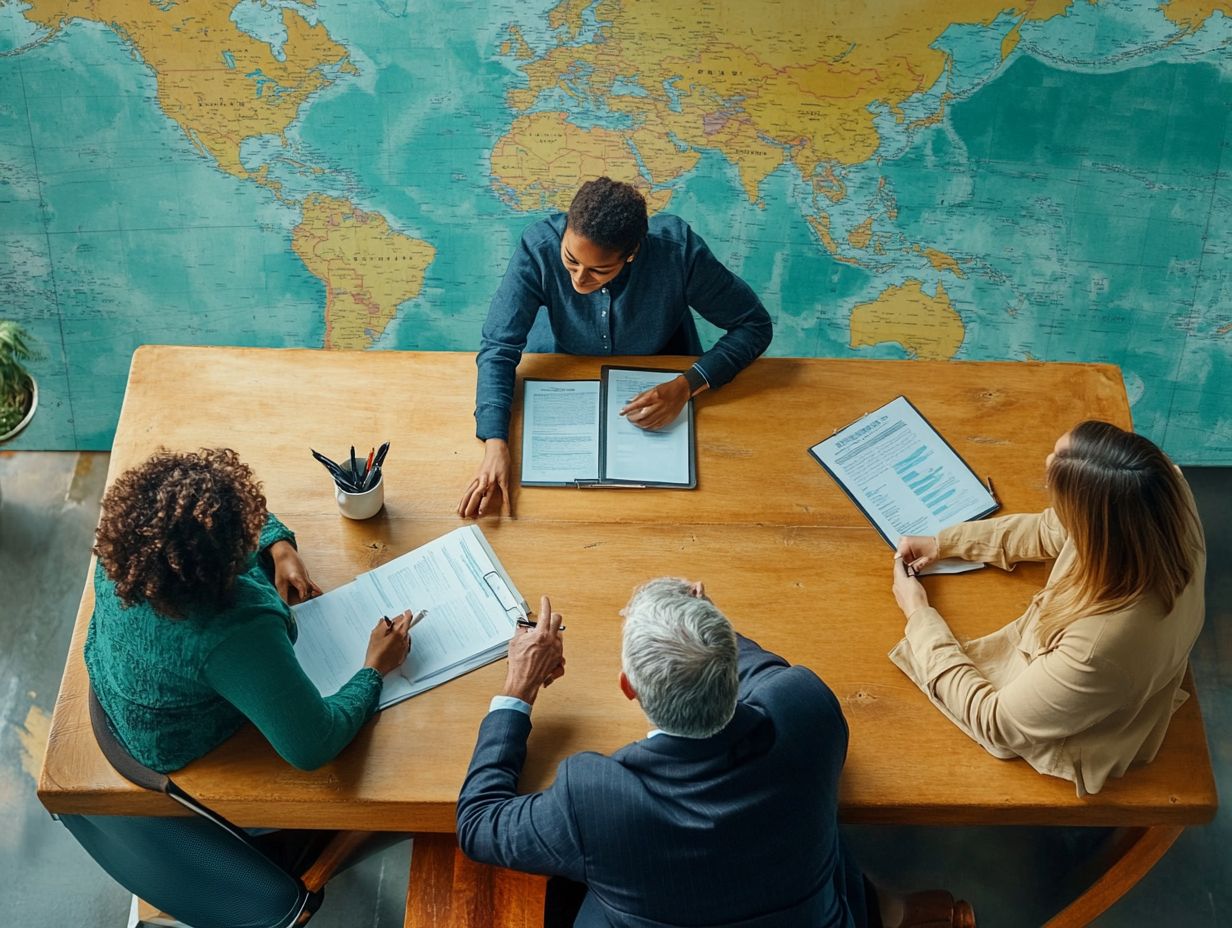
Copyright infringement occurs when an owner s exclusive rights are compromised through unauthorized use of their protected works.
This can lead to potential legal actions and serious consequences that you definitely want to avoid.
To learn more about copyright laws and how to protect your creations, consider seeking legal guidance or resources available online.
What Constitutes Infringement
Copyright infringement happens when you copy, share, or show creative works without permission.
This unlawful conduct undermines the exclusive rights given to creators, helping them control how their works are used and sold.
For example, if you print and sell copies of a bestselling novel without authorization, you infringe on the author’s right to reproduce the work.
Streaming a copyrighted film on your personal website for public viewing, without proper licenses, also violates public performance rights.
These examples highlight the different ways infringement can occur. They also emphasize the importance of respecting legal rights related to creative works.
Consequences and Legal Actions
Copyright infringement can lead to serious consequences. Expect lawsuits and severe penalties for infringing on someone else’s rights, even if you claim fair use.
If you or your organization violates intellectual property rights, you may face civil and sometimes criminal penalties.
Typically, the copyright holder starts the process by sending a cease-and-desist letter, outlining the infringements and demanding compliance.
If the matter escalates to court, both sides will present evidence. You ll need to demonstrate how your use qualifies as fair use.
This defense is crucial, considering factors like the purpose of your use, the nature of the original work, and its market impact.
Understanding these legal details is essential for navigating the complex world of copyright law.
Protecting Your Copyright
Protecting your copyright helps you stay in control of your creations. One of the best ways to achieve this is by registering your work with the U.S. Copyright Office.
Doing so secures exclusive rights and provides valuable legal support to safeguard your creations.
Steps to Protect Your Work
To protect your work, follow these steps: register your creations and understand your rights as a copyright owner.
The registration process involves filling out necessary forms and submitting copies of your work. This establishes a public record of ownership.
Keeping detailed documentation of your creative process not only strengthens your claims but also serves as key evidence should an infringement occur.
By taking these essential steps, you secure your unique expressions and open doors to many advantages, including the right to take legal action against unauthorized use.
This not only boosts the value of your creations but also strengthens your position in a digital marketplace.
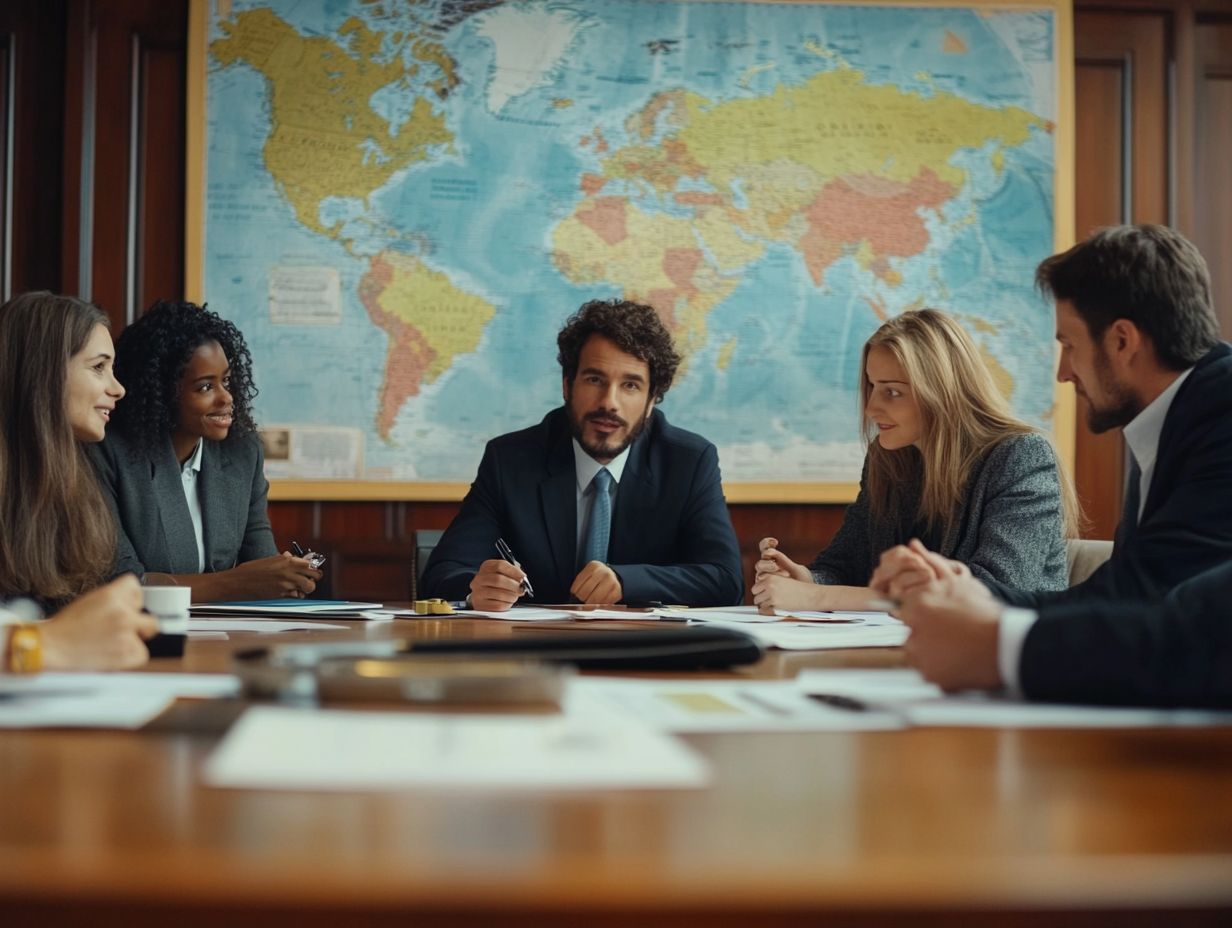
Navigating copyright globally has unique challenges you need to understand. You must grasp the intricacies of various copyright laws and explore understanding copyright in international contexts to protect your creations internationally.
Challenges and Strategies
Maintaining copyright protection globally has significant challenges due to varying enforcement methods and differing interpretations of creative expression. For insights on tackling these issues, consider navigating international IP strategies.
These differences can confuse you as a copyright owner, especially when dealing with global markets where laws vary widely.
For example, in some areas, fair use may allow broader unauthorized use of creative works, which can undermine your rights as a creator.
To tackle these challenges, consider using registration techniques and international treaties like the Berne Convention for solid protection.
Digital tools and platforms provide new ways to monitor usage and detect infringements. This allows you to be proactive in defending your creations against potential threats.
Don’t wait! Take action now to protect your copyright. Consult a legal professional or start the registration process today!
Summary of Key Points
Understanding copyright laws, like the Copyright Act and international treaties, is vital for creators. This knowledge helps protect your rights.
By learning these details, you can safeguard your original works from unauthorized use. This ensures you maintain control over your intellectual property.
Recognize that the digital media landscape is always changing. Staying aware helps you make informed decisions about your artistic expression.
Frequently Asked Questions
What is copyright and why is it important in a global market?
Copyright gives creators exclusive rights over their original works, like books, art, and music. In a global market, it ensures fair recognition and compensation.
How do I know if my work is protected by copyright in a global market?
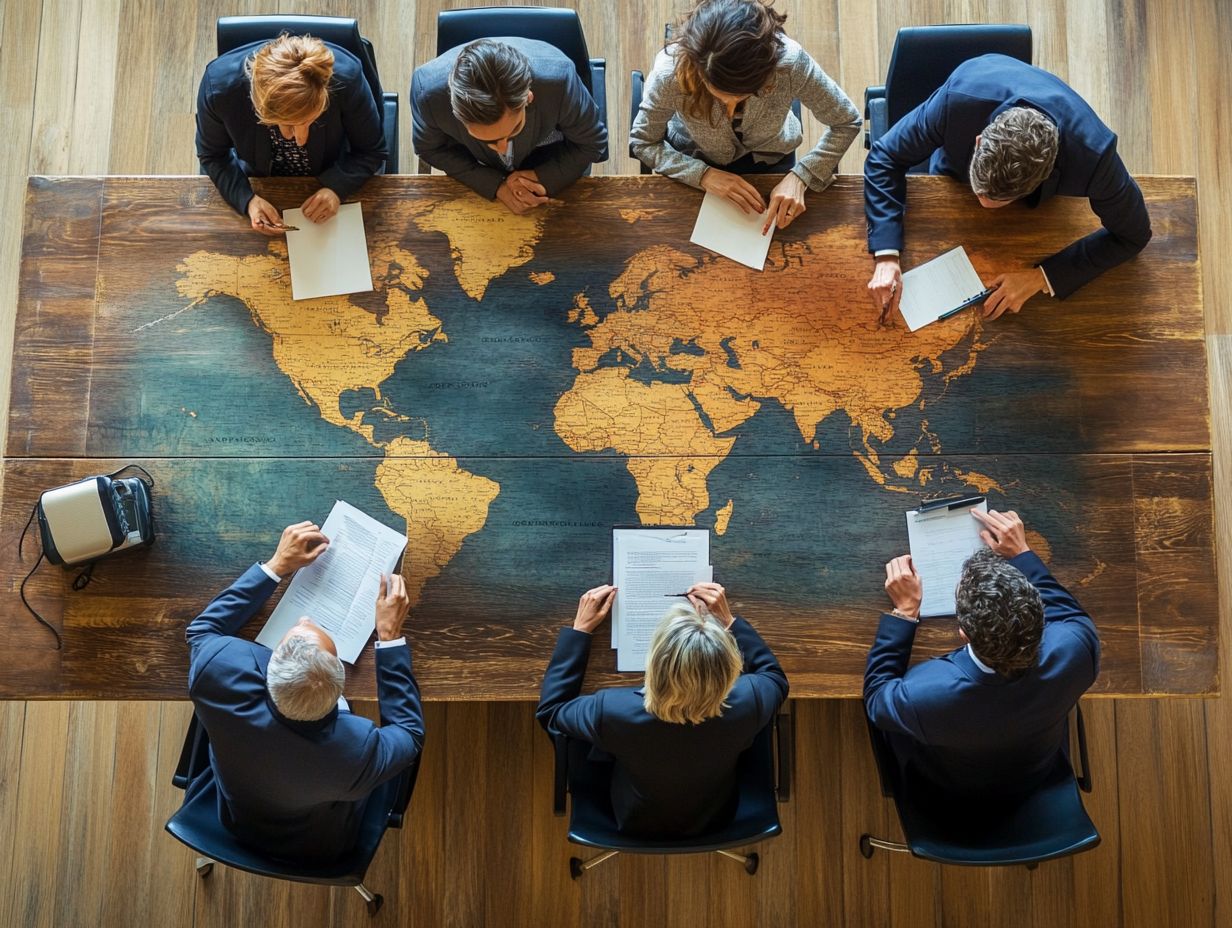
Most countries automatically grant copyright protection when a work is created. Registering your work solidifies your ownership in case of infringement.
What steps can I take to protect my copyright in a global market?
Besides registering your work, include a copyright notice. This should have the symbol, your name, and the year it was created.
Consider using watermarks or digital signatures to discourage unauthorized use.
Can my copyright be enforced in other countries?
Your copyright can be enforced internationally through agreements like the Berne Convention. Research the laws in countries where you want to enforce your copyright.
Can I use copyrighted material from other countries in my work?
Yes, as long as you get permission from the copyright holder or the material is in the public domain. Always check the original country’s copyright laws.
What are the consequences of copyright infringement in a global market?
Infringement can lead to legal action, fines, and harm your reputation as a creator. Respecting copyright is crucial for future protection.

